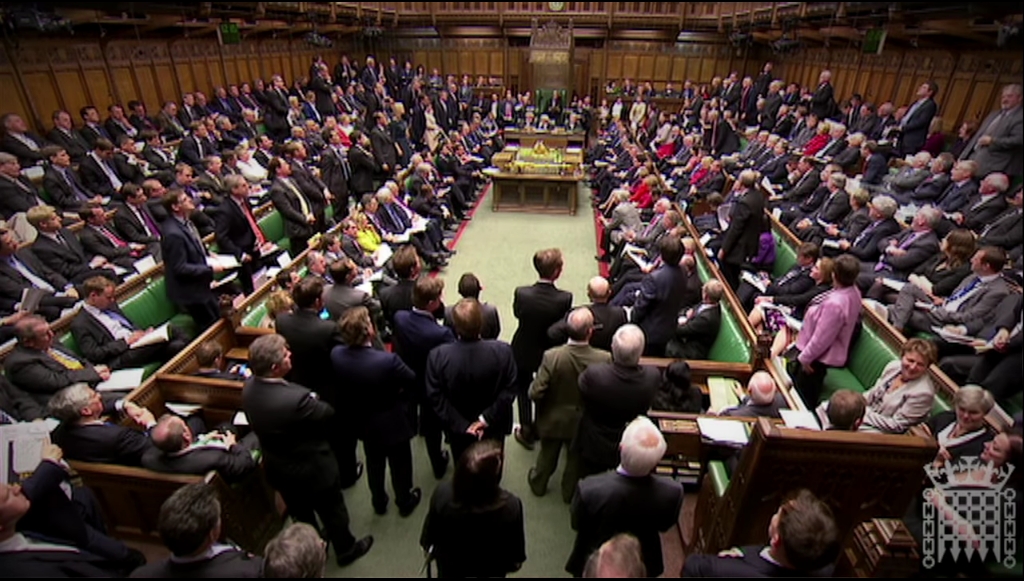
— London —
How well and how differently are Britain, where I am now in sequestered residence, and America doing in coping with the politics of the pandemic?
For starters, there are considerable differences and similarities between political styles in the two countries. Some differences are linked to profound constitutional variations. The U.S. President and federal government are not part of or within the national legislature, while in Britain the Prime Minister and all cabinet members must be members of Parliament to which they are regularly personally answerable.
It is a parliamentary convention that members do not mislead the legislature on important points of fact and must address each other with traditional respect (“The Honourable Member”), however rude and hostile the assertions they then proceed to make.
The convention against serious factual lying has some influence on their general public utterances and behavior. A Government Minister making a seriously inaccurate public statement on an important matter of fact runs a risk of being forced to correct it if challenged in Parliament.
None of this stops highly partisan behavior inside and outside the legislature. Government politicians assert often in extreme language their own excellence, the success of their own policies, and the futility of their opponents’ positions, while the latter make the opposite claims. In this respect there is some similarity between the two countries. In both countries the tone of political exchanges gets more fervid and morally less appealing when elections approach.
In Britain this was illustrated during the last couple of years when an election was looking likely and the whole political atmosphere was supercharged by the Brexit policy which deeply divided party political opponents, the parties themselves, the British public, and the press. In the USA the closeness of the general election this November coincides with equally deep divisions over both domestic and foreign policies.
In Britain the pandemic has led to a change in the atmosphere. There is no lack of challenge to the Government’s response but it is so far being expressed with less ferocity than usual. There is a widely shared feeling that the country faces a profound kind of national emergency last experienced in the Second World War. This does not suppress policy disagreements and challenges but at least temporarily reduces the fervor and extremism of their expression. There is, for example, emerging disagreement and controversy over when for economic reasons to remove or weaken the lockdown. But it has not led to centrally encouraged public and political demonstrations.
Just as her father did in the early 1940s the Queen as Head of State has made a public speech expressing sympathy and hope which was widely and deeply admired. It is hard to imagine a comparable response to any statement by her constitutional opposite number, the USA’s present President.
There are other notable differences. For the last month or so on every early evening a Government representative gives a televised press conference on the pandemic. The Minister is flanked by two varied Civil Service professional experts selected from the equivalent of the U S Surgeon General, the Government’s Chief Scientist, the top public health official, the senior doctor in the management of the National Health Service, or their deputies.
The result is a public and balanced mixture of Government policy assertion with non-partisan professional expertise. The government Minister – most often the Health Secretary during Boris Johnson’s illness and convalescence – describes the Government’s pandemic policies in positive terms without concealing the inevitable uncertainties and dilemmas. The professionals deal with technical questions and illustrate the course of the pandemic with statistical charts. Without dissenting from the political presentation they do sometimes more fully emphasise the uncertain and unpredictable elements in the situation.
These occasions come across as disciplined and professional with punctual timing, good clarity, reasonable brevity, and no impassioned hostility or displays of temperament. Certainly none of the speakers – even those suitably professionally qualified- would ever recommend to the public speculative but un-researched cures for the virus. The interactions with the press are marked by courtesy on both sides but no lack of hard questions from the journalists. American readers will no doubt make their own comparisons.
In contrast to these public occasions, there is a lack of transparency over the Government’s internal policy processes for handling the emergency, as reported in this story. There has been no disclosure of the membership or the advice of the key internal and nominally scientific committee which crucially advises on pandemic policies. This refusal has persisted in spite of increasing controversy over unconvincingly denied reports that the committee’s objective scientific character may have been undermined by political infiltration.
At least for now the pandemic has elbowed onto the back burner the British Government’s more controversial policies – Brexit, attacks on the British Broadcasting Corporation, and a commitment to review and probably increase political influence on judicial appointments in part inspired by the US example.
No doubt these will soon re-occupy the center of the political stage. Other trends familiar to American readers will probably soon re-emerge. One is a further increased influence of political advisory appointments within the historically independent Government service.
For underlying constitutional reasons, the British and American political systems and structures will foreseeably remain fundamentally different. But it is also likely that British political practices and atmosphere will soon edge a bit closer to those of the USA.
Discover more from Post Alley
Subscribe to get the latest posts sent to your email.
